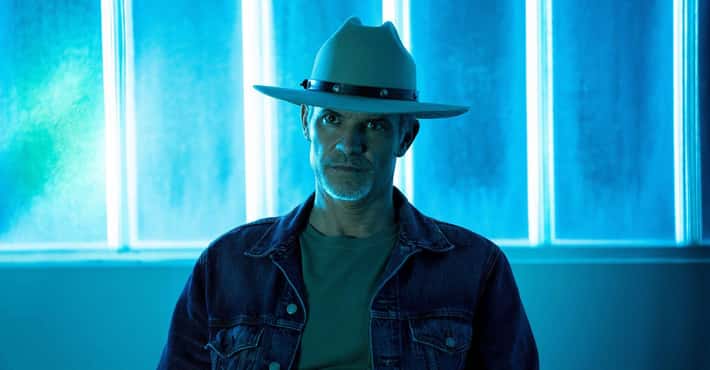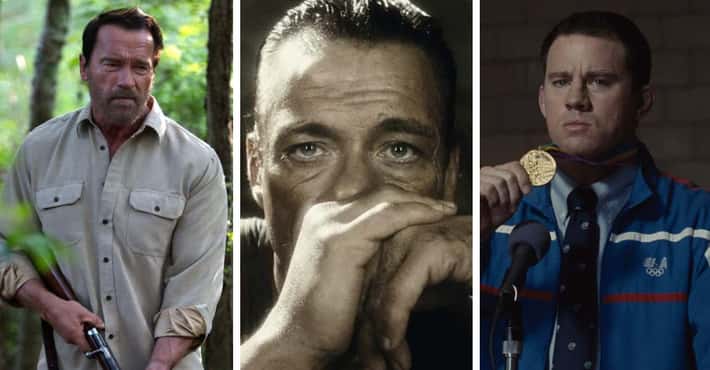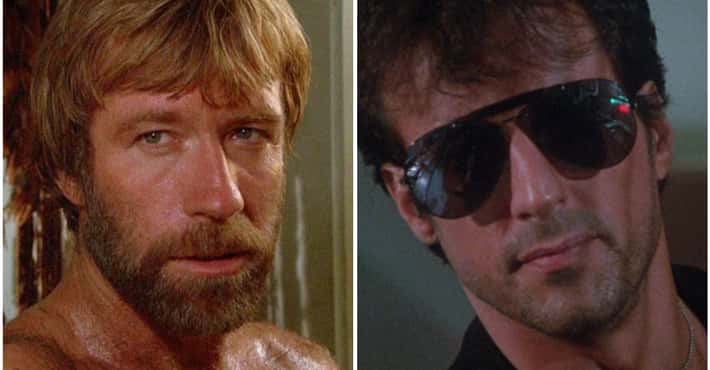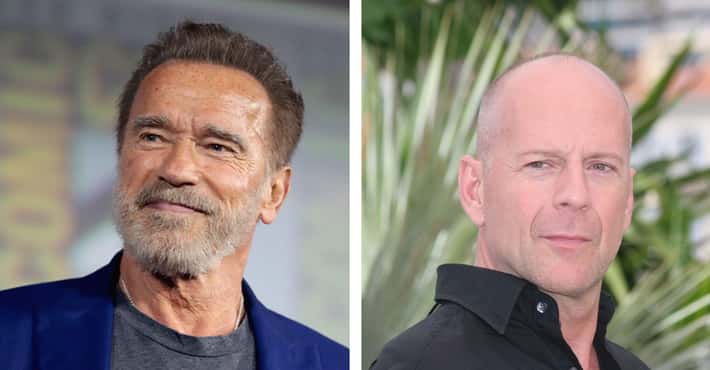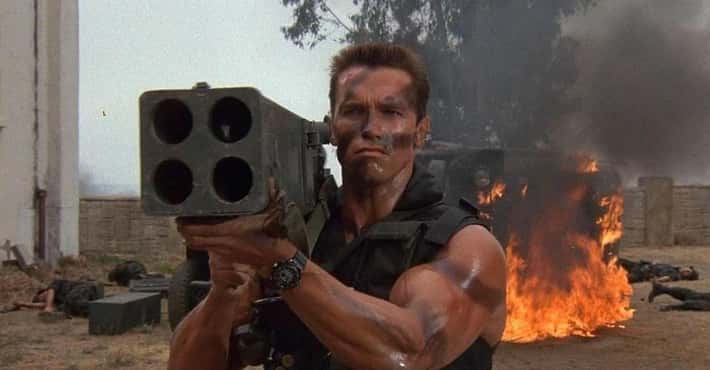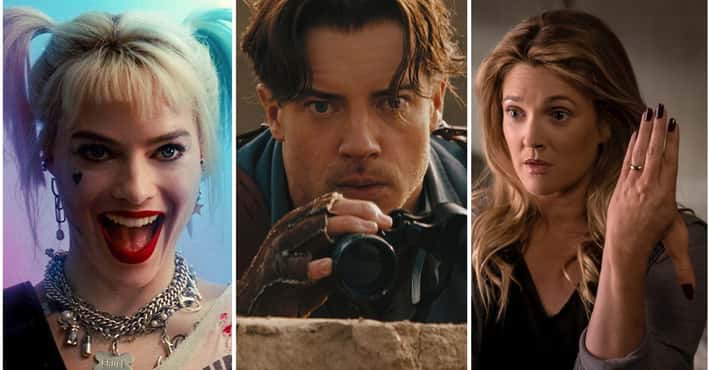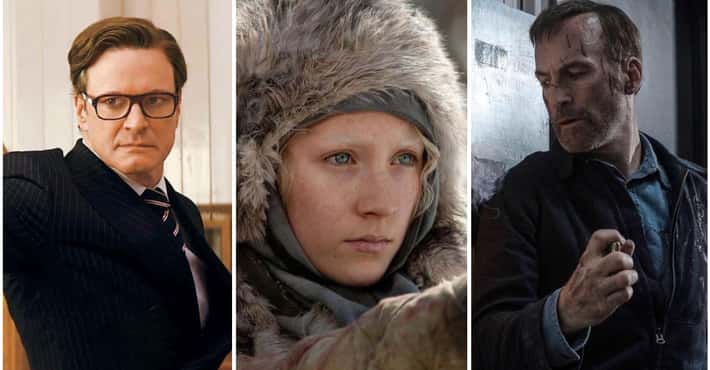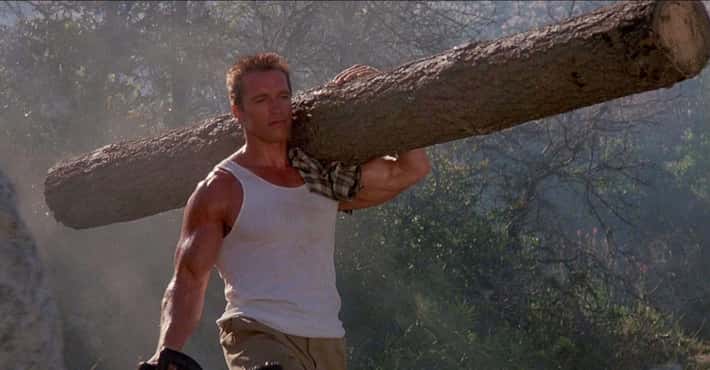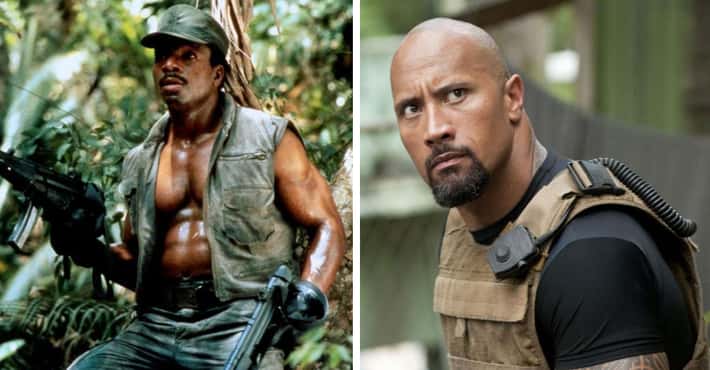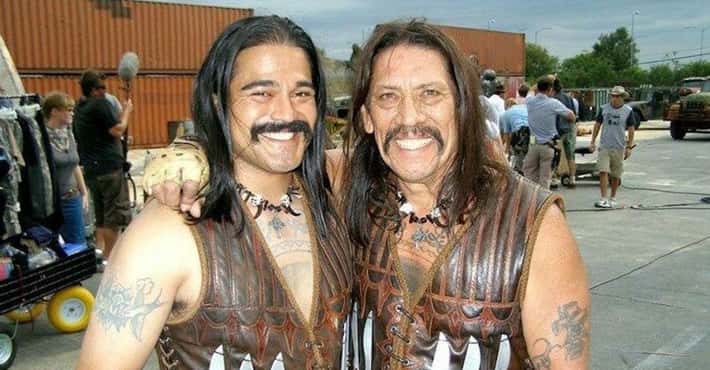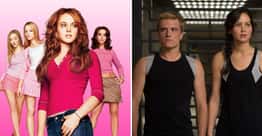The Best Toshiro Mifune Movies
Ranked By
1.3K votes
264 voters
Voting Rules
Vote for your favorite movies, regardless of critic reviews or how big the role was.
 1Toshiro Mifune, Takashi Shimura, Eijirō TōnoIn the heart of 1586 Japan, Seven Samurai unfolds. A rural village, terrorized by marauding bandits, recruits seven ronin - masterless samurai. Leading them is Kambei (Takashi Shimura), a seasoned warrior with a strategic mind. Among his team are personalities as diverse as Kikuchiyo (Toshiro Mifune), a boisterous yet compassionate soul, and Kyuzo (Seiji Miyaguchi), the silent sword-master. Directed by Akira Kurosawa, this epic adventure-drama won several awards, including the Silver Lion at Venice Film Festival. A tale of courage and sacrifice, it's a pivotal entry in the cinematic world that transcends its genre.More Seven Samurai
1Toshiro Mifune, Takashi Shimura, Eijirō TōnoIn the heart of 1586 Japan, Seven Samurai unfolds. A rural village, terrorized by marauding bandits, recruits seven ronin - masterless samurai. Leading them is Kambei (Takashi Shimura), a seasoned warrior with a strategic mind. Among his team are personalities as diverse as Kikuchiyo (Toshiro Mifune), a boisterous yet compassionate soul, and Kyuzo (Seiji Miyaguchi), the silent sword-master. Directed by Akira Kurosawa, this epic adventure-drama won several awards, including the Silver Lion at Venice Film Festival. A tale of courage and sacrifice, it's a pivotal entry in the cinematic world that transcends its genre.More Seven Samurai- #108 of 264 onThe 200+ Best War Movies Of All Time
- #172 of 191 onThe Best Movies For Men
- #706 of 769 onThe Most Rewatchable Movies
 2Toshiro Mifune, Takashi Shimura, Tatsuya NakadaiYojimbo is a 1961 jidaigeki film directed by Akira Kurosawa. It tells the story of a rōnin, portrayed by Toshiro Mifune, who arrives in a small town where competing lords vie for supremacy. The two bosses each try to hire the newcomer as a bodyguard. Based on the success of Yojimbo, Kurosawa's next film, Sanjuro, was altered to feature a similar lead character.More Yojimbo
2Toshiro Mifune, Takashi Shimura, Tatsuya NakadaiYojimbo is a 1961 jidaigeki film directed by Akira Kurosawa. It tells the story of a rōnin, portrayed by Toshiro Mifune, who arrives in a small town where competing lords vie for supremacy. The two bosses each try to hire the newcomer as a bodyguard. Based on the success of Yojimbo, Kurosawa's next film, Sanjuro, was altered to feature a similar lead character.More Yojimbo- #110 of 167 onThe Greatest '60s Movies, Ranked
- #80 of 81 onThe Most Rewatchable Action Movies
- #34 of 47 onThe 45+ Best Swords and Sandals Movies
 3Toshiro Mifune, Takashi Shimura, Machiko KyōRashomon is a 1950 Japanese period drama film directed by Akira Kurosawa, working in close collaboration with cinematographer Kazuo Miyagawa. It stars Toshiro Mifune, Machiko Kyō, Masayuki Mori and Takashi Shimura. The film is based on two stories by Ryūnosuke Akutagawa: "Rashomon", which provides the setting, and "In a Grove", which provides the characters and plot. The film is known for a plot device which involves various characters providing alternative, self-serving and contradictory versions of the same incident. The name of the film refers to the enormous city gate of Kyoto. The term Rashomon effect refers to real-world situations in which multiple eye-witness testimonies of an event contain conflicting information. Rashomon marked the entrance of Japanese film onto the world stage. It won several awards, including the Golden Lion at the Venice Film Festival in 1951, and an Academy Honorary Award at the 24th Academy Awards in 1952, and is now considered one of the greatest films ever made.
3Toshiro Mifune, Takashi Shimura, Machiko KyōRashomon is a 1950 Japanese period drama film directed by Akira Kurosawa, working in close collaboration with cinematographer Kazuo Miyagawa. It stars Toshiro Mifune, Machiko Kyō, Masayuki Mori and Takashi Shimura. The film is based on two stories by Ryūnosuke Akutagawa: "Rashomon", which provides the setting, and "In a Grove", which provides the characters and plot. The film is known for a plot device which involves various characters providing alternative, self-serving and contradictory versions of the same incident. The name of the film refers to the enormous city gate of Kyoto. The term Rashomon effect refers to real-world situations in which multiple eye-witness testimonies of an event contain conflicting information. Rashomon marked the entrance of Japanese film onto the world stage. It won several awards, including the Golden Lion at the Venice Film Festival in 1951, and an Academy Honorary Award at the 24th Academy Awards in 1952, and is now considered one of the greatest films ever made. 4Toshiro Mifune, Takashi Shimura, Tatsuya NakadaiSanjuro is a 1962 black-and-white Japanese samurai film directed by Akira Kurosawa and starring Toshiro Mifune. It is a sequel to Kurosawa's 1961 Yojimbo. Originally an adaptation of the Shūgorō Yamamoto story Hibi Heian, the script was altered with the success of Kurosawa's 1961 Yojimbo to incorporate the lead character of that film.
4Toshiro Mifune, Takashi Shimura, Tatsuya NakadaiSanjuro is a 1962 black-and-white Japanese samurai film directed by Akira Kurosawa and starring Toshiro Mifune. It is a sequel to Kurosawa's 1961 Yojimbo. Originally an adaptation of the Shūgorō Yamamoto story Hibi Heian, the script was altered with the success of Kurosawa's 1961 Yojimbo to incorporate the lead character of that film. 5Toshiro Mifune, Takashi Shimura, Isuzu YamadaThrone of Blood is a 1957 Japanese film directed by Akira Kurosawa. The film transposes the plot of William Shakespeare's play Macbeth to feudal Japan, with stylistic elements drawn from Noh drama.More Throne of Blood
5Toshiro Mifune, Takashi Shimura, Isuzu YamadaThrone of Blood is a 1957 Japanese film directed by Akira Kurosawa. The film transposes the plot of William Shakespeare's play Macbeth to feudal Japan, with stylistic elements drawn from Noh drama.More Throne of Blood- Dig Deeper...List of All Samurai Cinema Movies
- And Deeper...List of All Fantasy Movies
- #69 of 120 onThe Best Movies Based On Plays
 6Toshiro Mifune, Takashi Shimura, Kinuyo TanakaRed Beard is a 1965 Japanese film directed by Akira Kurosawa about the relationship between a town doctor and his new trainee. The film was based on Shūgorō Yamamoto's short story collection, Akahige shinryōtan. Fyodor Dostoevsky's novel The Insulted and the Injured provided the source for a subplot about a young girl, Otoyo, who is rescued from a brothel. Red Beard looks at the problem of social injustice and explores two of Kurosawa's favourite topics: humanism and existentialism.
6Toshiro Mifune, Takashi Shimura, Kinuyo TanakaRed Beard is a 1965 Japanese film directed by Akira Kurosawa about the relationship between a town doctor and his new trainee. The film was based on Shūgorō Yamamoto's short story collection, Akahige shinryōtan. Fyodor Dostoevsky's novel The Insulted and the Injured provided the source for a subplot about a young girl, Otoyo, who is rescued from a brothel. Red Beard looks at the problem of social injustice and explores two of Kurosawa's favourite topics: humanism and existentialism. 7Toshiro Mifune, Takashi Shimura, Makatari FujiwaraThe Hidden Fortress is a 1958 jidaigeki film directed by Akira Kurosawa and starring Toshiro Mifune as General Makabe Rokurōta and Misa Uehara as Princess Yuki.
7Toshiro Mifune, Takashi Shimura, Makatari FujiwaraThe Hidden Fortress is a 1958 jidaigeki film directed by Akira Kurosawa and starring Toshiro Mifune as General Makabe Rokurōta and Misa Uehara as Princess Yuki. 8Toshiro Mifune, Takashi Shimura, Eitarō ShindōDrunken Angel is a 1948 Japanese yakuza film directed by Akira Kurosawa. It is notable for being the first of sixteen film collaborations between director Kurosawa and actor Toshiro Mifune.
8Toshiro Mifune, Takashi Shimura, Eitarō ShindōDrunken Angel is a 1948 Japanese yakuza film directed by Akira Kurosawa. It is notable for being the first of sixteen film collaborations between director Kurosawa and actor Toshiro Mifune. 9Toshiro Mifune, Takashi Shimura, Tatsuya NakadaiHigh and Low is a 1963 police procedural crime drama film directed by Akira Kurosawa, starring Toshiro Mifune, Tatsuya Nakadai and Kyōko Kagawa. The film is loosely based on King's Ransom, by Ed McBain.
9Toshiro Mifune, Takashi Shimura, Tatsuya NakadaiHigh and Low is a 1963 police procedural crime drama film directed by Akira Kurosawa, starring Toshiro Mifune, Tatsuya Nakadai and Kyōko Kagawa. The film is loosely based on King's Ransom, by Ed McBain. 10Toshiro Mifune, Takashi Shimura, Setsuko HaraChūshingura: Hana no Maki, Yuki no Maki is a 1962 color period drama Japanese film directed by Hiroshi Inagaki.
10Toshiro Mifune, Takashi Shimura, Setsuko HaraChūshingura: Hana no Maki, Yuki no Maki is a 1962 color period drama Japanese film directed by Hiroshi Inagaki. 11Toshiro Mifune, Yorozuya Kinnosuke, Rentarō MikuniShinsengumi is a 1969 Japanese jidaigeki film. The true story of the end of the Shogunate, the tragedy of the Shinsengumi is one of the best loved stories of Japanese history and has been adapted many times on stage, screen, television, and anime. This film, starring Toshiro Mifune with an all-star cast, stands out as one of the definitive adaptations of this classic tale.
11Toshiro Mifune, Yorozuya Kinnosuke, Rentarō MikuniShinsengumi is a 1969 Japanese jidaigeki film. The true story of the end of the Shogunate, the tragedy of the Shinsengumi is one of the best loved stories of Japanese history and has been adapted many times on stage, screen, television, and anime. This film, starring Toshiro Mifune with an all-star cast, stands out as one of the definitive adaptations of this classic tale. 12Toshiro Mifune, Rentarō Mikuni, Kuroemon OnoeMiyamoto Musashi (aka Samurai I: Musashi Miyamoto) is a 1954 Japanese film by Hiroshi Inagaki and the first film of Inagaki's Samurai Trilogy of historical adventures.
12Toshiro Mifune, Rentarō Mikuni, Kuroemon OnoeMiyamoto Musashi (aka Samurai I: Musashi Miyamoto) is a 1954 Japanese film by Hiroshi Inagaki and the first film of Inagaki's Samurai Trilogy of historical adventures. 13Toshiro Mifune, Kōji Tsuruta, Kaoru YachigusaSamurai III: Duel at Ganryu Island is a 1956 Japanese samurai film directed by Hiroshi Inagaki, and the third film of Inagaki's Samurai Trilogy.
13Toshiro Mifune, Kōji Tsuruta, Kaoru YachigusaSamurai III: Duel at Ganryu Island is a 1956 Japanese samurai film directed by Hiroshi Inagaki, and the third film of Inagaki's Samurai Trilogy. 14Toshiro Mifune, Kōji Tsuruta, Mariko OkadaDuel at Ichijoji Temple (aka Samurai II: Duel at Ichijoji Temple) is a 1955 Japanese samurai film directed by Hiroshi Inagaki, adapted from Eiji Yoshikawa's novel Musashi, and the second film of Inagaki's Samurai Trilogy.
14Toshiro Mifune, Kōji Tsuruta, Mariko OkadaDuel at Ichijoji Temple (aka Samurai II: Duel at Ichijoji Temple) is a 1955 Japanese samurai film directed by Hiroshi Inagaki, adapted from Eiji Yoshikawa's novel Musashi, and the second film of Inagaki's Samurai Trilogy. 15Toshiro Mifune, Takashi Shimura, Chishū RyūThe Bad Sleep Well is a 1960 film directed by the Japanese director Akira Kurosawa. It was the first film to be produced under Kurosawa's own independent production company. It was entered into the 11th Berlin International Film Festival. The film stars Toshiro Mifune as a young man who gets a prominent position in a corrupt postwar Japanese company in order to expose the men responsible for his father's death. It has its roots in Shakespeare's Hamlet. It is also a critique of corporate corruption, with one of its recurring themes being the difficulty combating such corruption, due to a corporate culture in which lower level people feel obligated literally to die, rather than allow their superiors' activities to be discovered.More The Bad Sleep Well
15Toshiro Mifune, Takashi Shimura, Chishū RyūThe Bad Sleep Well is a 1960 film directed by the Japanese director Akira Kurosawa. It was the first film to be produced under Kurosawa's own independent production company. It was entered into the 11th Berlin International Film Festival. The film stars Toshiro Mifune as a young man who gets a prominent position in a corrupt postwar Japanese company in order to expose the men responsible for his father's death. It has its roots in Shakespeare's Hamlet. It is also a critique of corporate corruption, with one of its recurring themes being the difficulty combating such corruption, due to a corporate culture in which lower level people feel obligated literally to die, rather than allow their superiors' activities to be discovered.More The Bad Sleep Well- #18 of 29 onThe Best Modern Versions of Shakespeare Plays
- #24 of 24 onGreat Movies Where The Hero Doesn't Change Or Grow At All
- #25 of 81 onThe 80+ Best Japanese Yakuza Movies
 16Orson Welles, Richard Chamberlain, Toshiro MifuneShōgun is an American television miniseries based on the international bestselling 1975 novel of the same name by James Clavell, who also was the executive producer of the miniseries. It was first broadcast in the United States on NBC over five nights between September 15 and September 19, 1980. To date, it is the only USA TV show/miniseries to be filmed entirely on location in Japan; sound stage shooting was also done in Japan at Toho Company, Ltd., studios. The miniseries is loosely based on the adventures of English navigator William Adams, who journeyed to feudal Japan in 1600 and rose to high rank in the service of the Shōgun. The miniseries follows Englishman John Blackthorne's transforming experiences and political intrigues in feudal Japan in the early 17th century.More Shōgun
16Orson Welles, Richard Chamberlain, Toshiro MifuneShōgun is an American television miniseries based on the international bestselling 1975 novel of the same name by James Clavell, who also was the executive producer of the miniseries. It was first broadcast in the United States on NBC over five nights between September 15 and September 19, 1980. To date, it is the only USA TV show/miniseries to be filmed entirely on location in Japan; sound stage shooting was also done in Japan at Toho Company, Ltd., studios. The miniseries is loosely based on the adventures of English navigator William Adams, who journeyed to feudal Japan in 1600 and rose to high rank in the service of the Shōgun. The miniseries follows Englishman John Blackthorne's transforming experiences and political intrigues in feudal Japan in the early 17th century.More Shōgun- #176 of 249 onThe Best TV Shows Of The '80s, Ranked
- #10 of 217 onThe 145+ Best Mini Series List
- #14 of 89 onThe 80+ Best John Rhys-Davies Movies
 17Toshiro Mifune, Tatsuya Nakadai, Etsuko IchiharaSamurai Rebellion is a 1967 Japanese film directed by Masaki Kobayashi. Its original Japanese title is Jōi-uchi: Hairyō tsuma shimatsu, which translates approximately as "Rebellion: Result of the Wife Bestowed" or "Rebellion: Receive the Wife".
17Toshiro Mifune, Tatsuya Nakadai, Etsuko IchiharaSamurai Rebellion is a 1967 Japanese film directed by Masaki Kobayashi. Its original Japanese title is Jōi-uchi: Hairyō tsuma shimatsu, which translates approximately as "Rebellion: Result of the Wife Bestowed" or "Rebellion: Receive the Wife". 18Toshiro Mifune, Takashi Shimura, Keiko AwajiStray Dog is a 1949 Japanese police procedural film noir directed by Akira Kurosawa and starring Toshiro Mifune and Takashi Shimura. The film is considered a precursor to the contemporary police procedural and buddy cop film genres.
18Toshiro Mifune, Takashi Shimura, Keiko AwajiStray Dog is a 1949 Japanese police procedural film noir directed by Akira Kurosawa and starring Toshiro Mifune and Takashi Shimura. The film is considered a precursor to the contemporary police procedural and buddy cop film genres. 19Lee Marvin, Toshiro MifuneDuring World War II, Japanese naval officer Captain Tsuruhiko Kuroda (Toshirô Mifune) is stranded on a remote island in the Pacific Ocean. He soon discovers a loudmouthed American pilot (Lee Marvin) who has crashed his plane. Unable to communicate verbally, the two enemies initially taunt each other and refuse to cooperate. But when they begin to face starvation, dehydration and exhaustion, they are forced to put aside their differences and rely on one another for survival.More Hell in the Pacific
19Lee Marvin, Toshiro MifuneDuring World War II, Japanese naval officer Captain Tsuruhiko Kuroda (Toshirô Mifune) is stranded on a remote island in the Pacific Ocean. He soon discovers a loudmouthed American pilot (Lee Marvin) who has crashed his plane. Unable to communicate verbally, the two enemies initially taunt each other and refuse to cooperate. But when they begin to face starvation, dehydration and exhaustion, they are forced to put aside their differences and rely on one another for survival.More Hell in the Pacific- #166 of 264 onThe 200+ Best War Movies Of All Time
- #12 of 19 onPretty Good World War II Movies
- #6 of 25 onThe Best Movies Directed by John Boorman
 20Toshiro Mifune, Tatsuya Nakadai, Yūzō KayamaThe Sword of Doom, is a jidaigeki film released in 1966. It was directed by Kihachi Okamoto and stars Tatsuya Nakadai. It was based on the serial novel of the same title by Kaizan Nakazato.More The Sword of Doom
20Toshiro Mifune, Tatsuya Nakadai, Yūzō KayamaThe Sword of Doom, is a jidaigeki film released in 1966. It was directed by Kihachi Okamoto and stars Tatsuya Nakadai. It was based on the serial novel of the same title by Kaizan Nakazato.More The Sword of Doom- #27 of 76 onThe 75+ Best Samurai Movies Of All Time
- #1 of 74 onThe Best Japanese Action Movies of All Time
- #43 of 46 onThe Best '60s Action Movies
 21Toshiro Mifune, Hideyo Amamoto, Akihiko HirataSamurai Assassin is a 1965 Japanese movie directed by Kihachi Okamoto and starring Toshiro Mifune, Koshiro Matsumoto, Yunosuke Ito, and Michiyo Aratama. Samurai Assassin is set in 1860, immediately before the Meiji Restoration changed Japanese society forever by doing away with the castes in society and reducing the position of the samurai class. The film tells the story of Niiro Tsurichiyo as the illegitimate son of a powerful nobleman, and the way of his life that made him a swordfighter but also a social outcast. He joins forces with the multiple clans against the Lord of Hikone, Sir Ii Kamonnokami Naosuke. Ii is the right hand of the shogunate and brought upon himself the wrath of the Satsuma, Mito, and Choshuu provinces after making an unpopular choice for the appointment of the 14th shogunate. Many critics arouse after the controversial appointment, and Ii initiated the Ansei Purge to quiet critics of his choices. This in turn, lead to an assassination plot hatched by the three provinces in order to remove Li from his position of power. The shoguns also weeding out Ii's spies from the plot.
21Toshiro Mifune, Hideyo Amamoto, Akihiko HirataSamurai Assassin is a 1965 Japanese movie directed by Kihachi Okamoto and starring Toshiro Mifune, Koshiro Matsumoto, Yunosuke Ito, and Michiyo Aratama. Samurai Assassin is set in 1860, immediately before the Meiji Restoration changed Japanese society forever by doing away with the castes in society and reducing the position of the samurai class. The film tells the story of Niiro Tsurichiyo as the illegitimate son of a powerful nobleman, and the way of his life that made him a swordfighter but also a social outcast. He joins forces with the multiple clans against the Lord of Hikone, Sir Ii Kamonnokami Naosuke. Ii is the right hand of the shogunate and brought upon himself the wrath of the Satsuma, Mito, and Choshuu provinces after making an unpopular choice for the appointment of the 14th shogunate. Many critics arouse after the controversial appointment, and Ii initiated the Ansei Purge to quiet critics of his choices. This in turn, lead to an assassination plot hatched by the three provinces in order to remove Li from his position of power. The shoguns also weeding out Ii's spies from the plot. 22Charlton Heston, Henry Fonda, James CoburnIn this dramatization of the Battle of Midway during World War II, U.S. Navy Adm. Chester Nimitz (Henry Fonda) leads an outnumbered unit in the Pacific to break Japanese encryption codes. They soon discover that Adm. Yamamoto (Toshirô Mifune) plans an ambush of the U.S. base on the island of Midway. Capt. Matt Garth (Charlton Heston) helps devise the Navy's strategy, while his pilot son, Tom (Edward Albert), falls in love with a Japanese-American woman who is headed for an internment camp.More Midway
22Charlton Heston, Henry Fonda, James CoburnIn this dramatization of the Battle of Midway during World War II, U.S. Navy Adm. Chester Nimitz (Henry Fonda) leads an outnumbered unit in the Pacific to break Japanese encryption codes. They soon discover that Adm. Yamamoto (Toshirô Mifune) plans an ambush of the U.S. base on the island of Midway. Capt. Matt Garth (Charlton Heston) helps devise the Navy's strategy, while his pilot son, Tom (Edward Albert), falls in love with a Japanese-American woman who is headed for an internment camp.More Midway- #31 of 264 onThe 200+ Best War Movies Of All Time
- #146 of 199 onThe Best Movies Of The '70s, Ranked
- #162 of 308 onThe 295+ Best Movies For Guys
 23Toshiro Mifune, Shintaro Katsu, Shin KishidaZatoichi Meets Yojimbo is a drama, action and adventure film directed by Kihachi Okamoto.
23Toshiro Mifune, Shintaro Katsu, Shin KishidaZatoichi Meets Yojimbo is a drama, action and adventure film directed by Kihachi Okamoto. 24Toshiro Mifune, Takashi Shimura, Kinuyo TanakaThe Life of Oharu 西鶴一代女, Saikaku Ichidai Onna, "Saikaku's Amorous Woman" is a 1952 historical fiction black-and-white film directed by Kenji Mizoguchi starring Kinuyo Tanaka as Oharu, a one-time concubine of a daimyo who struggles to escape the stigma of having been forced into prostitution by her father. It is based on a novel by Ihara Saikaku. The film tells a story that uses the experiences of a struggling courtesan to examine the issues of class and rigid hierarchy in Japanese society in the Edo period.
24Toshiro Mifune, Takashi Shimura, Kinuyo TanakaThe Life of Oharu 西鶴一代女, Saikaku Ichidai Onna, "Saikaku's Amorous Woman" is a 1952 historical fiction black-and-white film directed by Kenji Mizoguchi starring Kinuyo Tanaka as Oharu, a one-time concubine of a daimyo who struggles to escape the stigma of having been forced into prostitution by her father. It is based on a novel by Ihara Saikaku. The film tells a story that uses the experiences of a struggling courtesan to examine the issues of class and rigid hierarchy in Japanese society in the Edo period. 25Charles Bronson, Ursula Andress, Toshiro MifuneA train carrying a Japanese delegation with a ceremonial sword for President Grant is robbed by bandits led by Link (Charles Bronson) and Gauche (Alain Delon). When Gauche double-crosses him and leaves him for dead, Link is ordered to team up with Kuroda Jubei (Toshirô Mifune), one of the ambassador's guards, who has a week to recover the sword or commit suicide. Hoping to find out from Gauche where the gang buried their spoils before Kuroda can kill him, Link tries to escape from the samurai.
25Charles Bronson, Ursula Andress, Toshiro MifuneA train carrying a Japanese delegation with a ceremonial sword for President Grant is robbed by bandits led by Link (Charles Bronson) and Gauche (Alain Delon). When Gauche double-crosses him and leaves him for dead, Link is ordered to team up with Kuroda Jubei (Toshirô Mifune), one of the ambassador's guards, who has a week to recover the sword or commit suicide. Hoping to find out from Gauche where the gang buried their spoils before Kuroda can kill him, Link tries to escape from the samurai.- 26
Samurai Banners
Toshiro Mifune, Akihiko Hirata, Ken OgataSamurai Banners is a Japanese samurai drama film released in 1969. It was directed by Hiroshi Inagaki and is based on the life of the famous Sengoku-era battle strategist, Yamamoto Kansuke.  27Toshiro Mifune, Nobuko Otowa, Shima IwashitaRed Lion is a 1969 Japanese film directed by Kihachi Okamoto and starring Toshirō Mifune and Shima Iwashita.
27Toshiro Mifune, Nobuko Otowa, Shima IwashitaRed Lion is a 1969 Japanese film directed by Kihachi Okamoto and starring Toshirō Mifune and Shima Iwashita. 28James Garner, Eva Marie Saint, Yves MontandThe most daring drivers in the world have gathered to compete for the 1966 Formula One championship. After a spectacular wreck in the first of a series of races, American wheelman Pete Aron (James Garner) is dropped by his sponsor. Refusing to quit, he joins a Japanese racing team. While juggling his career with a torrid love affair involving an ex-teammate's wife, Pete must also contend with Jean-Pierre Sarti (Yves Montand), a French contestant who has previously won two world titles.More Grand Prix
28James Garner, Eva Marie Saint, Yves MontandThe most daring drivers in the world have gathered to compete for the 1966 Formula One championship. After a spectacular wreck in the first of a series of races, American wheelman Pete Aron (James Garner) is dropped by his sponsor. Refusing to quit, he joins a Japanese racing team. While juggling his career with a torrid love affair involving an ex-teammate's wife, Pete must also contend with Jean-Pierre Sarti (Yves Montand), a French contestant who has previously won two world titles.More Grand Prix- Dig Deeper...The Best Formula 1 Drivers Of All Time
- And Deeper...List of All Movies Released in 1966
- #68 of 198 onThe Best Metro-Goldwyn-Mayer Movies List
 29Jeff Bridges, John Huston, Anthony PerkinsInspired by the conspiracy theories surrounding John F. Kennedy's assassination, this comic thriller follows Nick Kegan (Jeff Bridges), the younger brother of a U.S. president killed 19 years earlier. After finding a man claiming to be his brother's second assassin, Nick begins an intricate investigation into the secrets behind the murder. But Nick runs into trouble when his controlling father (John Huston) tries to keep him from uncovering the truth.
29Jeff Bridges, John Huston, Anthony PerkinsInspired by the conspiracy theories surrounding John F. Kennedy's assassination, this comic thriller follows Nick Kegan (Jeff Bridges), the younger brother of a U.S. president killed 19 years earlier. After finding a man claiming to be his brother's second assassin, Nick begins an intricate investigation into the secrets behind the murder. But Nick runs into trouble when his controlling father (John Huston) tries to keep him from uncovering the truth.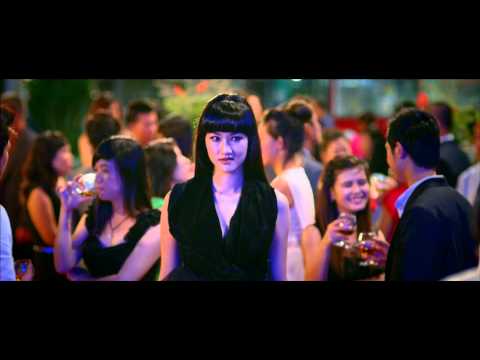 30Toshiro Mifune, Takashi Shimura, Tanie KitabayashiScandal is a 1950 film written and directed by Akira Kurosawa. The film stars Toshirō Mifune, Takashi Shimura and Shirley Yamaguchi.
30Toshiro Mifune, Takashi Shimura, Tanie KitabayashiScandal is a 1950 film written and directed by Akira Kurosawa. The film stars Toshirō Mifune, Takashi Shimura and Shirley Yamaguchi.



